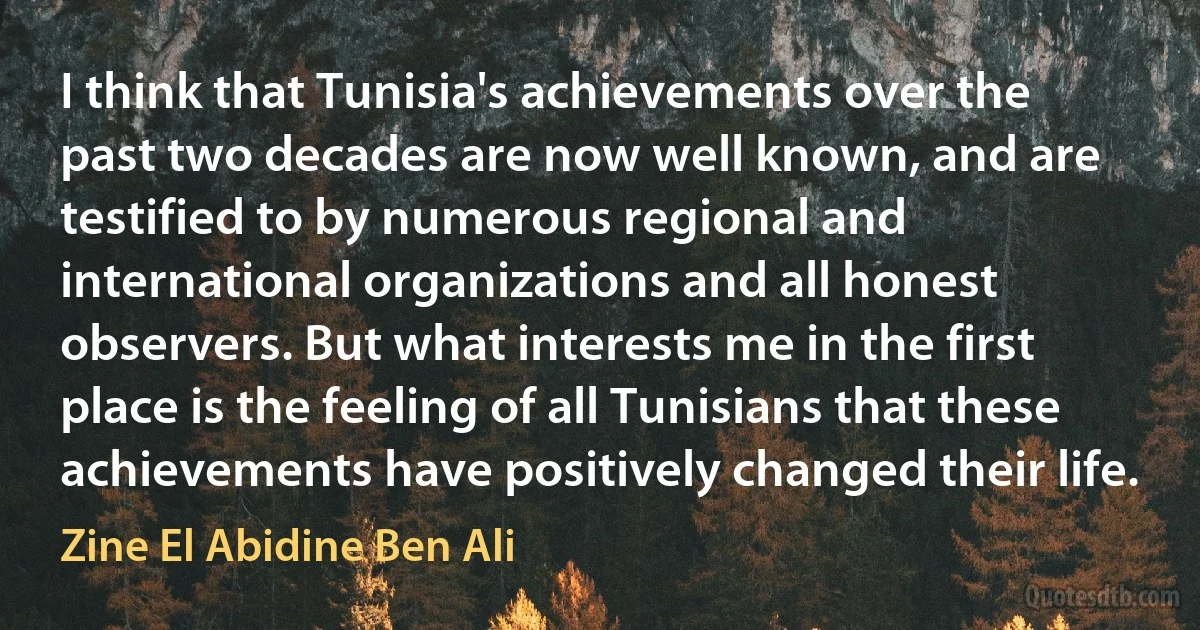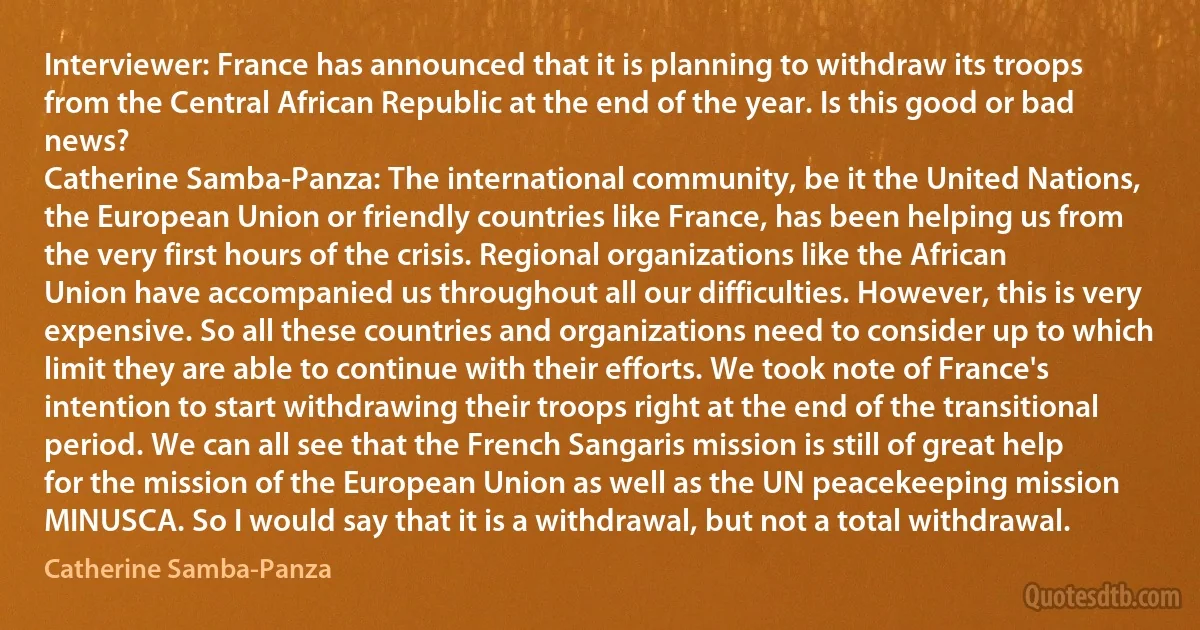Regional Quotes - page 4
(referring to phone numbers stored in a database of phone and email records) Since '1' identifies anyone in the regional zone 1 of the world, that's the US, Canada and some of the islands - it's right there in the front of your white pages book ... all they have to do is use that as a base of knowledge to go in to their entire database and count all of the phone numbers there that had a one in them, right-and then the ones are in the United States and then they'd have a count of how many Americans are in the database and how often each one's there. And yet they claim they can't do that, which is false. You can do the same thing with email, with service providers, IPs and things like that.

William Binney
Today, to put down Modi, Congressmen don't tire of praising Atal Bihari Vajpayee as a moderate consensus builder. But while Vajpayee was prime minister he was targeted with as much ruthlessness as Modi-only that it cut less ice with the media or the people at large because Vajpayee was a well known national figure. By contrast, Modi was a relatively obscure regional leader for most Indians, as well as for most media professionals.

Atal Bihari Vajpayee
Each of these five propositions is intrinsically sound. Each is wise. Each is capable of implementation. Taken collectively, they constitute a practical and principled foundation for regional cooperation and security. I endorse them without reservation and I express the hope, the fervent hope of all of us in other five countries of the region, that India and Pakistan will see in these principles the way forward for them on the path of friendship and peace.

I. K. Gujral
His ascension to the post of Prime Minister was a bit of a surprise, since he was not a frontrunner and was neither from the Congress nor the BJP, predictably the two largest winners. However, since an alliance between them was out of the question, it was left to the Congress to throw its weight behind a number of regional parties and take control. The Janata Dal and Gowda emerged the biggest winners.

H. D. Deve Gowda
There is no such concept as one limit for the entice system: rather different parts of the system face different limits at different times with the traumatic experiences for the entire system depending on the interrelationship of the constituent parts - the collapse, if it occurs, would he regional rather than global, even though the entire global system would be affected.

Mihajlo D. Mesarovic
The recent discoveries that human evolution has been recent, copious and regional severely undercut the social scientists' official view of the world because they establish that genetics may have played a possible substantial role alongside culture in shaping the differences between human populations.

Nicholas Wade
The fact that human evolution has been recent, copious and regional is not widely recognized, even though it has now been reported by many articles in the literature of genetics. The reason is in part that the knowledge is so new and in part because it raises awkward challenges to deeply held conventional wisdom.

Nicholas Wade
The United Front Government's neighbourhood policy now stands on five basic principles: First, with the neighbours like Nepal, Bangladesh, Bhutan, Maldives and Sri Lanka, India does not ask for reciprocity but gives all that it can in good faith and trust. Secondly, no South Asian country will allow its territory to be used against the interest of another country of the region. Thirdly, none will interfere in the internal affairs of another. Fourthly, all South Asian countries must respect each other's territorial integrity and sovereignty. And finally, they will settle all their disputes through peaceful bilateral negotiations. These five principles, scrupulously observed, will, I am sure, recast South Asia's regional relationship, including the tormented relationship between India and Pakistan, in a friendly, cooperative mould.

I. K. Gujral
The growth in linguistic awareness about the problem, and the emergence of an associated activism, was one of the most exciting developments of the 1990s. Although awareness is still poor among the general public, the issues are now being much more widely discussed at professional levels, in a variety of international, national, regional, and local contexts. At one extreme, there are major campaigns such as those involved in promulgating the Barcelona Declaration of Linguistic Rights, or such initiatives as the `Red Book on Endangered Languages' (part of the Tokyo Clearing House project). At the other extreme, there is lively debate taking place within many of the endangered communities themselves. Mechanisms and structures are now in place to channel energies.

David Crystal
The concept of the "organic growth” of mankind, as we have proposed in this report, is intended as a contribution toward achieving that end. Were mankind to embark on a path of organic growth, the world would emerge as a system of interdependent and harmonious parts, each making its own unique contributions, be it in economics, resources, or culture.
... Such an approach must start from and preserve the world's regional diversity. Paths of development, region-specific rather than based on narrow national interests, must be designed to lead to a sustainable balance between the interdependent world-regions and to global harmony – that is, to mankind's growth as an "organic entity” from its present barely embryonic state.

Mihajlo D. Mesarovic
Being Muslim has become synonymous with pointed questions, with tension and mistrust, even with conflict. It has become a global phenomenon with profound consequences for inter-communal relations, political rhetoric and policies at the local, regional, national and international level.

Tariq Ramadan
Tunisia's responsibility, and especially that of its political and intellectual elites, is enormous. All the protagonists of the nation's social, cultural, economic and political life must work to overcome useless and counterproductive polarisation, and to find solutions to domestic, regional and international problems.

Tariq Ramadan
The spirit and outlook of 'Sankhya' will be universal, but its form and content must necessarily be, to some extent, regional. We shall keep the special needs of India in view without, however, restricting the scope of the journal in any way. We shall naturally devote closer attention to the collection and analysis of data relating to India, but we shall try to study all Indian questions in relation to world problems.... The study of modern statistical methods in its infancy in our country, and we do not expect to be able to achieve immediate results. We shall be satisfied if we can help by our humble efforts to lay the foundations for future work.

Prasanta Chandra Mahalanobis
Bollywood film music composers are under a lot of pressure to add elements of disco or bhangra or any other flavour currently popular with the youth. But when it comes to regional films, composers are given a free hand and they compose music they believe in. I think it's a matter of great pride to be singing such soulful tunes.

Shreya Ghoshal



